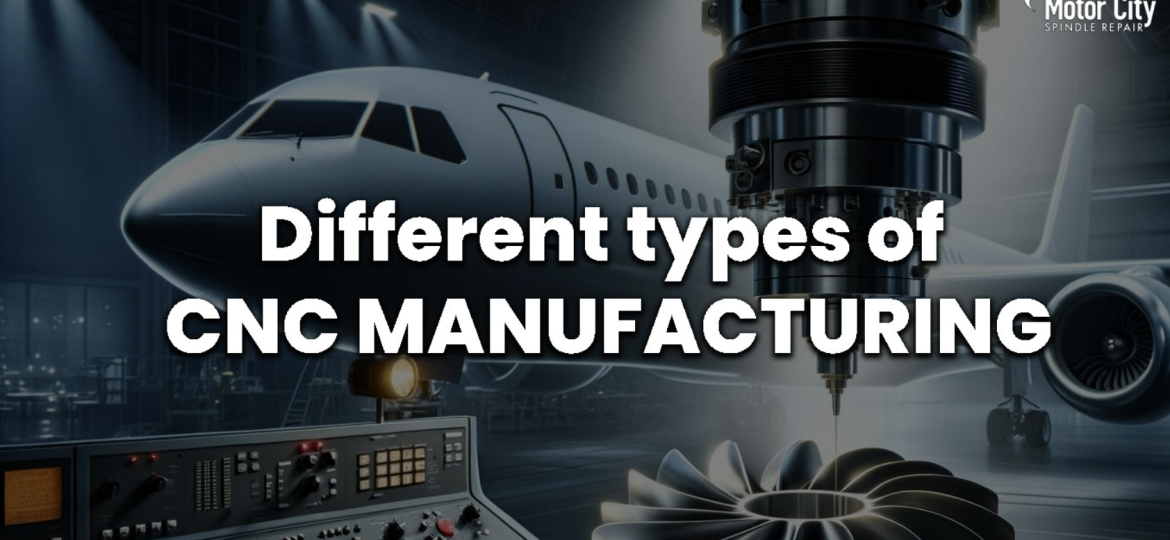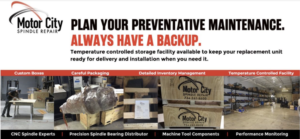
Understanding the Different Types of CNC Manufacturing
Computer Numerical Control (CNC) manufacturing has revolutionized the way we produce parts and products across various industries. By using computerized controls to operate and manipulate machinery, CNC technology ensures precision, efficiency, and consistency. Let’s explore the different types of CNC manufacturing processes and their applications.
1. CNC Milling
Description: CNC milling involves removing material from a workpiece using rotary cutters. The milling machine can move along multiple axes, typically three to five, to achieve the desired shape and size.
Applications:
- Creating complex parts with intricate details
- Prototyping and production runs in aerospace, automotive, and medical industries
- Fabricating parts from metals, plastics, and composites
Advantages:
- High precision and accuracy
- Versatility in material and design
- Suitable for both small and large production volumes
2. CNC Turning
Description: CNC turning uses a lathe to rotate the workpiece while a cutting tool removes material to create cylindrical parts. The tool moves along two axes, typically X and Z, to shape the workpiece.
Applications:
- Manufacturing shafts, bushings, and other cylindrical components
- Producing high-volume parts for automotive and industrial machinery
- Working with metals, plastics, and wood
Advantages:
- Efficient for producing symmetrical parts
- High repeatability and consistency
- Cost-effective for large production runs
3. CNC Drilling
Description: CNC drilling involves creating holes in a workpiece using rotating drill bits. The machine can precisely control the depth, diameter, and location of the holes.
Applications:
- Creating holes for screws, bolts, and other fasteners
- Manufacturing circuit boards, engine components, and medical devices
- Suitable for metals, plastics, and composite materials
Advantages:
- High precision and accuracy in hole placement
- Ability to drill at various angles and depths
- Fast and efficient for high-volume production
4. CNC Plasma Cutting
Description: CNC plasma cutting uses a high-velocity jet of ionized gas (plasma) to cut through electrically conductive materials. The machine can move the plasma torch along multiple axes to create complex shapes.
Applications:
- Cutting steel, aluminum, brass, and copper sheets
- Fabricating metal parts for construction, automotive, and industrial equipment
- Artistic metalwork and signage
Advantages:
- Fast cutting speeds
- Ability to cut thick and thin materials
- Minimal heat distortion compared to traditional cutting methods
5. CNC Laser Cutting
Description: CNC laser cutting uses a focused laser beam to melt, burn, or vaporize material. The machine can precisely control the laser’s intensity, position, and movement to create detailed cuts and engravings.
Applications:
- Cutting and engraving metals, plastics, wood, and glass
- Manufacturing electronic components, jewelry, and custom parts
- Creating intricate designs for architectural models and artwork
Advantages:
- High precision and clean edges
- Minimal material wastage
- Suitable for both small and large production runs
6. CNC Electrical Discharge Machining (EDM)
Description: CNC EDM uses electrical discharges (sparks) to erode material from a workpiece. The process involves immersing the workpiece in a dielectric fluid and using a controlled electrical current to shape the material.
Applications:
- Producing complex shapes and fine details in hard metals
- Manufacturing molds, dies, and aerospace components
- Working with materials that are difficult to machine using traditional methods
Advantages:
- Ability to machine hard and brittle materials
- High precision and accuracy
- Minimal thermal damage to the workpiece
Conclusion
CNC manufacturing offers a wide range of processes, each suited for specific applications and materials. By understanding the different types of CNC manufacturing, businesses can choose the most appropriate method for their production needs, ensuring efficiency, precision, and high-quality results. Whether it’s milling, turning, drilling, or cutting, CNC technology continues to drive innovation and excellence in modern manufacturing.
CONTACT US ANYTIME IF YOU’D LIKE TO CHAT WITH OUR EXPERTS OR STOP BY OUR 25,000 SF MANUFACTURING FACILITY LOCATED IN DEARBORN, MICHIGAN!(734) 261-8600 OR EMAIL US AT SALES@MOTORCITYREPAIR.COM

*All quotes are accompanied by a detailed failure analysis report
*We frequently repair spindles in 2-5 business days in emergency situations
*Normal time averages 1-3 weeks for standard repairs
*We keep precision bearings, seals, o-rings, encoders, and other commonly replaced spindle parts in stock and on hand
*Always available 24 hours a day and 7 days a week for emergency repair service
*We deliver the repaired product to you
*Our repairs are balanced, test ran, and certified with a full 1 Year Warranty
*We repair or build new depending on your needs
*Guaranteed cost savings
Need a FREE ESTIMATE? Click HERE To view our most recent blog post, click HERE Have questions about ballscrews? Check out our BALL SCREW WEBSITE

